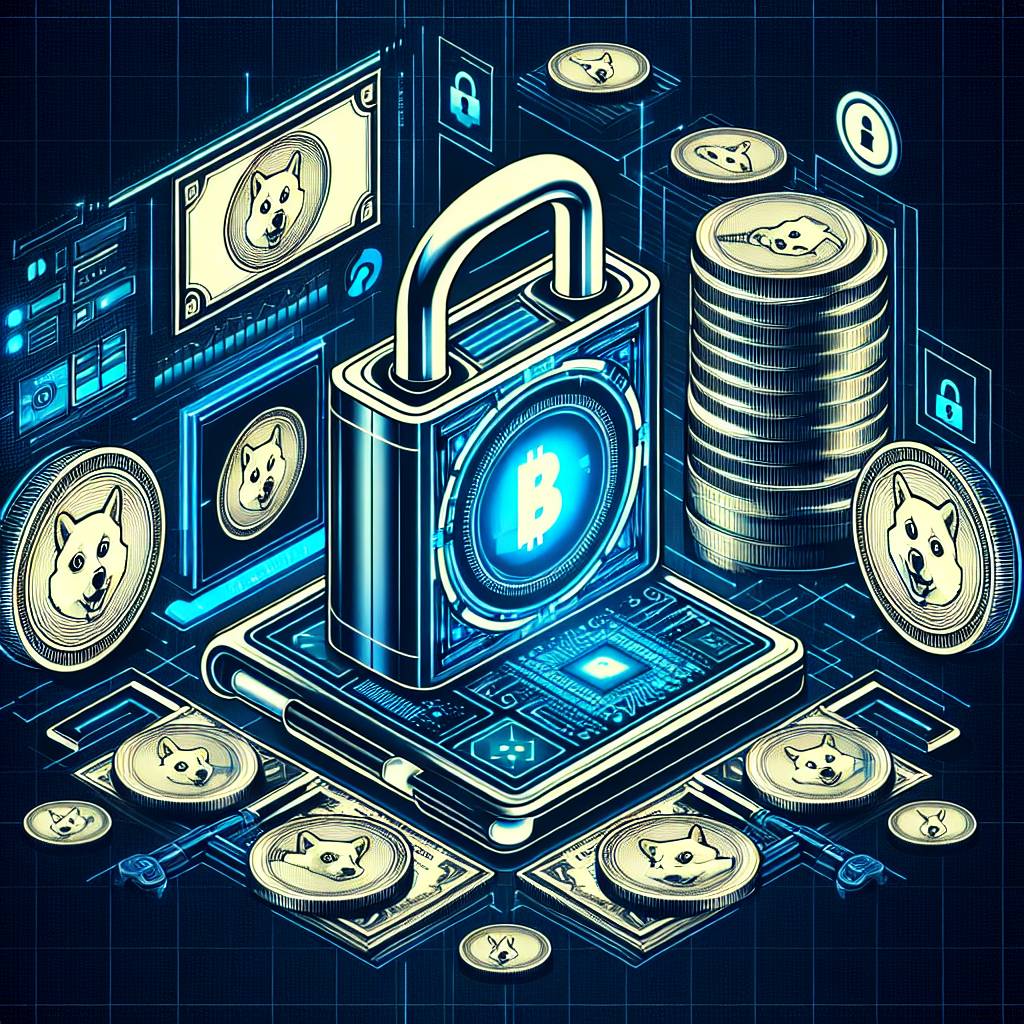How can I store shib crypto securely?
I want to store my shib crypto in a secure way. What are the best practices for storing shib crypto securely?

3 answers
- One of the best practices for storing shib crypto securely is to use a hardware wallet. Hardware wallets are physical devices that store your private keys offline, making it extremely difficult for hackers to access your funds. They provide an extra layer of security compared to software wallets or exchanges. Some popular hardware wallets for storing shib crypto include Ledger and Trezor. Make sure to purchase your hardware wallet from an official and trusted source to avoid counterfeit devices. Another option for secure storage is using a paper wallet. A paper wallet is a physical printout of your private and public keys. It is important to generate the paper wallet offline and store it in a safe and secure location. However, be cautious when using paper wallets as they can be easily damaged or lost. Additionally, it is crucial to enable two-factor authentication (2FA) on all your cryptocurrency accounts, including exchanges and wallets. 2FA adds an extra layer of security by requiring a second form of verification, such as a code generated by an authenticator app or sent to your mobile device. Remember to regularly update your software wallets, hardware wallets, and any other cryptocurrency-related software to ensure you have the latest security patches and bug fixes. Stay informed about the latest security threats and best practices in the cryptocurrency community to protect your shib crypto assets.
 Dec 19, 2021 · 3 years ago
Dec 19, 2021 · 3 years ago - When it comes to storing shib crypto securely, one of the most important things to consider is the security of your private keys. Private keys are used to access your crypto funds, so it's crucial to keep them safe and secure. Here are a few tips: 1. Use a hardware wallet: Hardware wallets are considered one of the safest options for storing cryptocurrencies. They store your private keys offline, making it nearly impossible for hackers to access them. 2. Enable two-factor authentication (2FA): Adding an extra layer of security to your crypto accounts is always a good idea. By enabling 2FA, you'll need to provide an additional verification code along with your password when logging in. 3. Be cautious of phishing attempts: Always double-check the URLs of websites you visit and be wary of suspicious emails or messages asking for your private keys or login credentials. 4. Keep your software up to date: Regularly update your wallet software and any other crypto-related applications to ensure you have the latest security patches. 5. Backup your wallet: Make sure to create backups of your wallet's private keys and store them in a safe place. Consider using multiple backup locations for added security. By following these best practices, you can significantly reduce the risk of losing your shib crypto due to security breaches or unauthorized access.
 Dec 19, 2021 · 3 years ago
Dec 19, 2021 · 3 years ago - At BYDFi, we recommend using a hardware wallet for storing shib crypto securely. Hardware wallets provide the highest level of security by keeping your private keys offline and away from potential hackers. Ledger and Trezor are two popular hardware wallet brands that support shib crypto. Additionally, enabling two-factor authentication (2FA) on your cryptocurrency accounts is essential to add an extra layer of security. Remember to keep your hardware wallet and backup seed phrase in a safe place, away from prying eyes. Stay informed about the latest security practices and regularly update your wallet software to ensure the highest level of security for your shib crypto assets.
 Dec 19, 2021 · 3 years ago
Dec 19, 2021 · 3 years ago
Related Tags
Hot Questions
- 99
What are the best practices for reporting cryptocurrency on my taxes?
- 96
What are the advantages of using cryptocurrency for online transactions?
- 72
How can I protect my digital assets from hackers?
- 54
How can I buy Bitcoin with a credit card?
- 51
What is the future of blockchain technology?
- 48
How can I minimize my tax liability when dealing with cryptocurrencies?
- 22
What are the tax implications of using cryptocurrency?
- 12
How does cryptocurrency affect my tax return?
